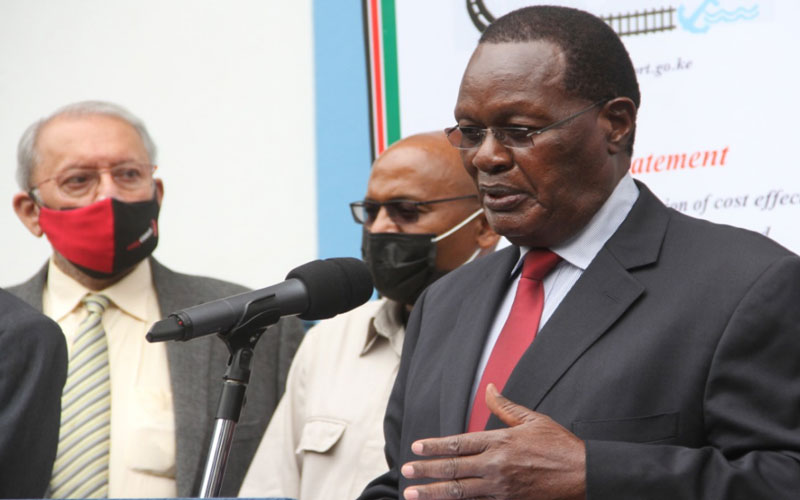×
The Standard e-Paper
Kenya’s Boldest Voice

Transport CAS Chris Obure addressing journalists at the Transcom House in Nairobi on Friday, August 6, 2021. [Edward Kiplimo, Standard]
Public Service Vehicles (PSV) countrywide will resume carrying passengers at full capacity starting Monday.